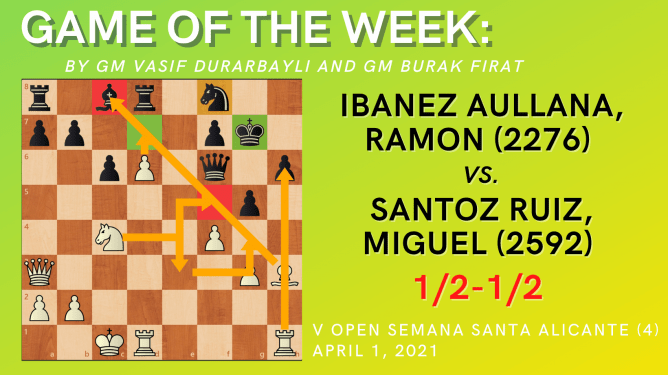So-called “grandmaster draws” used to bother many chess lovers, so some organizers came up with rules against it. The most known and recognized one is a no-draw offer before move 30, which is applied in most FIDE events.
This may sound like a good rule on the surface, but it led to ugly repetition draws such as the well-known Qe4, Qd4 Berlin variation. For instance, I have already lost count of how many times it happened in the latest stage of the Champions Chess Tour.
The problem with this rule is that it forces a player who wishes to make a draw to play longer. What good outcome is there from forcing players to play for 30 moves when they only want to draw?!
What used to happen in the past is that, if a player wanted a draw, he would either offer it early on or just check the opponent’s preparation and then offer a draw, and the opponent could simply accept or decline it. If the offer was declined, at least the player would know their rival’s intention. This also creates a psychological battle too, which is the main theme of this week’s Game of the Week.
During my commentary of the latest Champions Chess Tour for Report, an Azerbaijani news agency, I featured guest commentator GM Rauf Mamedov. When I asked him what should be done about these short draws, especially prearranged ones, he said that the solution is simple: the point system should be changed from 1 point for a win to 3 and 0.5 points for a draw to 1 like in soccer in order to provide an incentive to play for a victory.
The main problem with drawing is that the majority of grandmasters would prefer 2 draws over 1 win and 1 loss. The reason is simple: they hate losing. However, if we change the point system, this will incentivize them to approach the situation differently.
Just as in economics, if you give incentives to the participants, they do not have to be forced to do the task in question. Forcing must always be the last resort.
Some tournaments still do not have 30-move rules, and with more opportunities to offer a draw early on in the game, there is a psychological battle that occurs. For instance, if a much stronger player offers you a draw in a position that you consider better to you, but you are not certain about your ability to win the game, how should you decide to accept or decline their offer?
I came up with a rule of thumb after playing an important game when I was 14 years old and have been following it ever since. Whenever a higher-rated opponent offers me a draw, I ask myself: Would I agree with this offer if an opponent with a level similar to mine had offered it to me? If my answer is yes, I accept it.
Game of the Week is: Ibanez Aullana, Ramon vs. Santoz Ruiz, Miguel
White played a nearly perfect game and could have won if the game had continued, but accepted a draw instead.
Thank you for reading! If you enjoyed this article, please click the “Share” button, and if you find any noteworthy games that you think should appear on Game of the Week, please send us a message on Chess.com.
Please note that Game of the Week will cover games played from Saturday to Saturday of each week, and any games played on Sunday will go to the next week. See you next Sunday!
Contributors:
Edited by Della Almind

Leave a Reply